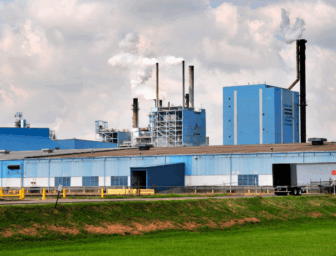Commission’s Building Energy Transition Plan Takes an Important Step
Toward Reducing Emissions from the State’s Building Sector
Baltimore, MD — The Maryland Commission on Climate Change has released its 2021 Annual Report and Building Energy Transition Plan, which recommends that all new construction in the state meet water and space heating demands with all-electric appliances no later than 2024. The Commission found that all-electric new homes have lower construction and energy costs than mixed-fuel homes and therefore this recommendation would help improve housing affordability and local air quality while reducing greenhouse gas emissions in Maryland.
Importantly, the Commission also calls on legislators to retrofit 100% of low-income households by 2030. Low-income customers in Maryland are already paying unsustainably high energy bills. The average annual energy burden for low-income Maryland households is 13 percent, according to a 2018 report commissioned by the Office of People’s Counsel.1 That is more than twice the threshold for a high energy burden, which researchers define as 6 percent. (See the Commission’s recommendations.)
In response to the Commission’s recommendation, Anne Havemann, General Counsel at the Chesapeake Climate Action Network, issued the following statement:
“Burning fossil fuels in homes, apartment buildings, and commercial buildings in the state accounted for 13 percent of Maryland’s greenhouse gas emissions in 2017. While we wish the report had gone further in certain respects, it contains some ambitious and necessary steps that will help the state begin to confront a large source of greenhouse gas emissions.
“When you’re in a hole, stop digging. The report’s all-electric new construction recommendation is a sensible first step in the building electrification transition that prevents us from making the problem worse. Moreover, all-electric new buildings typically have the lowest construction and operating costs and can actually help improve housing affordability while reducing greenhouse gas emissions. An all-electric new construction requirement is a win for the climate and your wallet.”
As customers transition off the gas system, gas rates will increase as costs will be distributed between fewer customers. Without intervention, low-income customers without the upfront capital to switch to electric appliances will be left paying even higher energy bills. For this reason, the Commission found it to be “critical that the state assist households with high energy burden to transition off the gas system before gas rates increase beyond current levels.”
Havemann’s statement continued:
“We agree with the Commission that it is critical to retrofit 100 percent of low-income households by 2030. Low-income Marylanders are already faced with unsustainably high energy bills, paying on average 13 percent of their income on energy bills when six percent is the threshold. As Marylanders transition off of gas and the rate base shrinks, gas bills will go up. Without deliberate policy design, we risk making the energy-burden problem worse for our low-income residents.
“We call on the General Assembly to follow the Commission’s recommendations and pass an all-electric new construction requirement in the 2022 legislative session. Further, local governments don’t need to wait for the General Assembly before taking action. To tackle climate change and lower costs, local governments can and should pass their own all-electric new construction requirements.”
The Maryland Commission on Climate Change is chaired by Maryland Department of the Environment Secretary Ben Grumbles and its mission is to advise the governor and General Assembly on strategies for reducing greenhouse gas emissions and preparing for and adapting to the impacts of climate change. The Building Energy Transition Plan is the result of multiple years of work from members of the Commission’s Buildings Sub-group.
Further reading:
Electrify Maryland: The Movement for Green Buildings in Maryland





